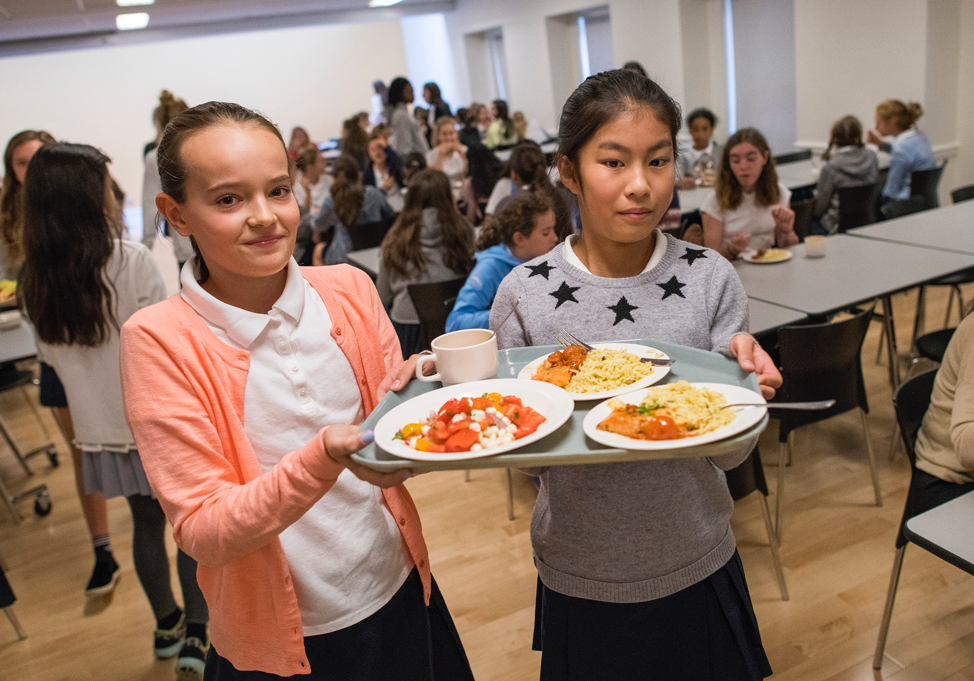By Dana Rosati
The food system in New York City is not only decentralized, but highly complex. Within this interconnected web of an urban foodscape, NYC hosts more independent private schools than any other city nationwide. Compared to the 1,700 public schools that encompass the city, there are roughly 200 independent private schools, each of which has the unique autonomy to provide the food that they desire to their students, based on a variety of factors. Of the private schools surveyed for this project, factors such as:ease of access, ethics, quality, locality, and sustainability of food suppliers and producers, as well as student demand, all play into the food choices school administrators and chefs use in nourishing school meal programs.
Since plant-based alternatives currently operate at a slightly higher price point, targeting those educational markets with higher food budgets are desirable. Therefore, private schools of New York City, with notable, often highly-lauded chefs, operating on higher budgets with a proclivity to sustainability in sourcing, have the ability to provide a new market entry point for NYC based plant-based companies. These schools, due to the nature of their budgets and funding, have the ability to keep price-per-meal prices hovering around $3 a meal, compared to public schools who need to maintain a $1.35 price per meal. This additional 2 or so dollars, allows private schools the flexibility to enhance school meal programs, to include vegan, vegetarian, and other dietary-friendly options. Thus, providing the first step of market entry into the web of educational institutions to increase demand, while slowly beginning to decrease price point and entry to public schools as well.
Additionally, a less bureaucratic system due much in part to lack of government heavy mandates and funding, allows for menu changes, access to a variety of suppliers and producers, and innovative approaches to food programing to be implemented quickly and efficiently in the private schools surveyed. Each school surveyed maintained a staunch proclivity to the “local,” and menus that are either suited for additional plant-based alternatives to meat and dairy, or a desire to implement more vegan options in meal planning.
The hope of this project is to encourage a generation of students open to the concept of plant-based alternatives to animal products as the “norm.” Introducing delicious plant-based meals that include substitutes such as, vegan pepperoni, seitan steaks, and pant-based milks, create a foundation to continue such food endeavors outside of the school environment. Not to mention they are just as, if not more, delicious than their animal-based counterparts!
All photos courtesy of The Spence School Food Services.
References:
Liem, Emma. “What’s driving consumer desire for plant-Based foods?” Food Dive, 5 July 2017, www.fooddive.com/news/whats-driving-consumer-desire-for-plant-based-foods/446183/.
“Private School Review.” NY Private High Schools | PrivateSchoolReview.Com, Online database, 10 Mar. 2018, www.privateschoolreview.com/new-york/bronx/high.
Ranganathan, Janet, and Daniel Vennard. “Shifting Diets for a Sustainable Food Future.” World Resources Institute, Apr. 2016, www.wri.org/publication/shifting-diets.

